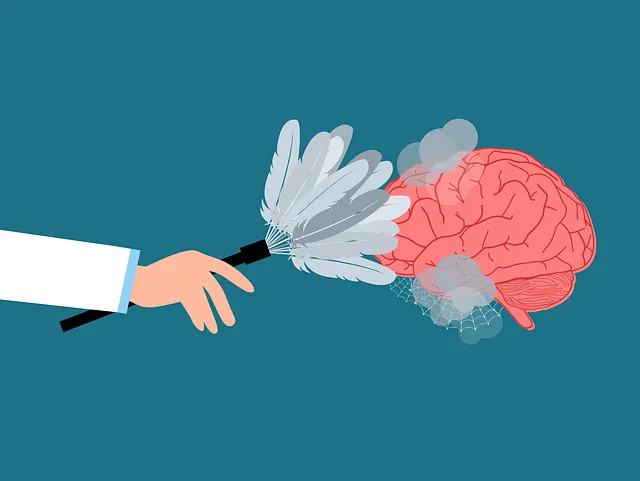The Kaiser Permanente mental health center in Louisville has transformed crisis intervention through its specialized Crisis Intervention Teams (CITs), improving patient outcomes and community safety. Their comprehensive training programs equip healthcare professionals with communication skills, empathy, de-escalation techniques, cognitive-behavioral therapy, mindfulness, and resilience to handle diverse crises effectively. This holistic approach not only benefits the center's patients but also fosters a culture of support and preparedness throughout the community, enhancing long-term mental health outcomes for all Louisville residents.
In today’s digital era, effective crisis intervention is crucial in mental health care. The article explores the vital role of Crisis Intervention Teams (CITs) and highlights Kaiser Permanente Louisville as a leading mental health training center. We delve into the key components of successful CIT training programs, focusing on preparing professionals with essential skills for real-world scenarios. Additionally, we discuss the long-term impact of such training in enhancing community resilience, drawing insights from Kaiser Permanente’s renowned practices at their Louisville location.
- Understanding Crisis Intervention Teams: A Vital Resource in Mental Health Care
- Kaiser Permanente Louisville: A Center for Excellence in Mental Health Training
- Components of Effective Crisis Intervention Team Training Programs
- Preparing Professionals: Skills and Strategies for Real-World Scenarios
- Long-Term Impact: Enhancing Community Resilience through Training
Understanding Crisis Intervention Teams: A Vital Resource in Mental Health Care

Crisis Intervention Teams (CITs) are a vital resource within mental health care systems, offering immediate and specialized support to individuals facing severe emotional distress. These teams, often composed of trained professionals from various disciplines, play a crucial role in de-escalating crises and providing effective short-term interventions. At the Kaiser Permanente mental health center in Louisville, for instance, CITs have been instrumental in improving patient outcomes and enhancing community safety.
By integrating CITs into the broader mental health care framework, organizations like Kaiser Permanente can ensure that individuals experiencing anxiety relief, positive thinking, or even depression prevention need have access to timely and competent assistance. These teams are designed to navigate complex situations with sensitivity, offering a lifeline for those struggling with intense emotions or thoughts of self-harm. Through evidence-based training programs, CIT members gain the skills needed to assess, intervene, and connect individuals with ongoing support services, ultimately fostering better mental health outcomes in their communities.
Kaiser Permanente Louisville: A Center for Excellence in Mental Health Training

Kaiser Permanente Louisville stands as a beacon of excellence in mental health training, offering specialized programs that cater to diverse needs. As a renowned center, it plays a pivotal role in equipping healthcare professionals with the skills to address critical mental health issues effectively. Their comprehensive curriculum encompasses various aspects, from anxiety relief techniques to advanced depression prevention strategies, ensuring practitioners are well-prepared to navigate complex scenarios.
Through innovative training methods, Kaiser Permanente Louisville fosters an environment where learning is immersive and impactful. The center’s commitment to Mental Health Policy Analysis and Advocacy further enriches the educational experience, providing insights into systemic changes that can improve access to mental health services. This holistic approach not only benefits individuals within the organization but also contributes to a broader framework for enhancing community well-being.
Components of Effective Crisis Intervention Team Training Programs

Effective crisis intervention team (CIT) training programs are multifaceted and comprehensive, designed to equip healthcare professionals with the skills needed to support individuals in acute mental health crises. These programs typically incorporate a range of essential components, tailored to address the unique challenges faced by teams at the Kaiser Permanente mental health center Louisville.
The core curriculum focuses on enhancing communication skills, fostering empathy, and promoting de-escalation techniques. Training should emphasize evidence-based practices such as cognitive-behavioral therapy principles for crisis management. Additionally, programs that delve into self-esteem improvement and emotional healing processes can empower team members to connect profoundly with clients. Stress management strategies are vital; teaching mindfulness and resilience helps professionals maintain composure under pressure. Through role-playing scenarios, teams rehearse effective interventions, ensuring they’re prepared to navigate complex situations with confidence and care.
Preparing Professionals: Skills and Strategies for Real-World Scenarios

Preparing professionals for crisis intervention requires a blend of specific skills and strategies designed to effectively navigate real-world scenarios. Programs like those offered at the Kaiser Permanente mental health center in Louisville prioritize immersive training that equips individuals with the tools to handle diverse crises, from acute emotional distress to traumatic events.
At the heart of these interventions are Self-Awareness Exercises and Confidence Boosting techniques aimed at fostering empathy, composure under pressure, and informed decision-making. Through role-playing exercises, participants learn to assess situations swiftly, implement evidence-based practices, and connect with individuals in need of Trauma Support Services. This holistic approach ensures professionals are not only prepared intellectually but also emotionally, allowing them to provide compassionate and impactful interventions in their communities, including Louisville.
Long-Term Impact: Enhancing Community Resilience through Training

The long-term impact of crisis intervention team (CIT) training programs extends far beyond immediate response capabilities. By equipping individuals with effective communication strategies and stress management techniques, these initiatives lay the groundwork for enhanced community resilience. The Kaiser Permanente mental health center in Louisville serves as a prime example where CIT training has fostered a culture of support and preparedness.
Through regular workshops and ongoing education, community members gain valuable insights into managing crisis situations not just at an individual level but also by implementing effective Community Outreach Program strategies. This holistic approach ensures that the entire neighborhood becomes more adept at handling mental health emergencies, fostering a safer and more supportive environment for all residents, including those at the Kaiser Permanente Louisville facility.
Crisis intervention team (CIT) training programs, such as those offered at Kaiser Permanente Louisville, play a pivotal role in enhancing community resilience and improving mental health care. By equipping professionals with essential skills and strategies, these programs ensure that communities are better prepared to navigate crisis situations effectively. The long-term impact includes not only improved outcomes for individuals in distress but also a more robust and responsive support network across the region. As a recognized center of excellence in mental health training, Kaiser Permanente Louisville’s initiatives underscore the importance of comprehensive CIT training in fostering healthier and more resilient communities.






